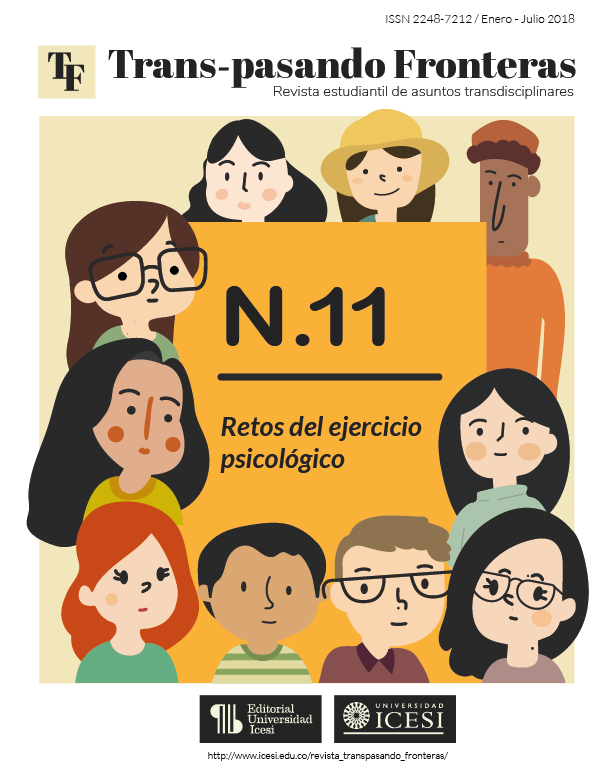The society and the specialist, the role of the psychologist as a bureaucrat of normality: between the clinic, its historical development and its implications.
DOI:
https://doi.org/10.18046/retf.i11.2683Keywords:
Madness, Normativity, Social order, Diagnostic, System.Abstract
This work aims to incite a reflection concerning the psychologist’s role coming from the
problematics that have involved the appearance of the professionals that make up the so
called disciplines in function of psi. Hence an appraisal is formulated as a critique on the
permanent demand of the institutions and the implications of the psychologists in them. In
addition, some historical aspects that led to the presence of professional intervention in the
normalization and promotion of the social structure inquiring its appearance in function of a
demanding society will be outlined. It is necessary to mention that, beyond what we could
propose as a way out of what psychology ideally could do to avoid the problematics that we
contemplate, it is rather a call to consistently think psychology, the current psychologist’s
role and to promote the critical practice it requires.
Downloads
References
Bercherie, P. (1980). Los fundamentos de la clínica. Paris: Navarin editeur.
Braunstein, N. (1982). ¿Cómo se constituye una ciencia? En Braunstein, N. (Ed), Psicología, ideología y ciencia. (pp. 7-21). Madrid: editorial siglo XXI.
Canguilhem, G. (1956). ¿Qué es la psicología? Buenos aires: Amorrortu editores.
Canguilhem, G. (1971). Lo normal y lo patológico. Argentina: editorial siglo XXI
Foucault, M. (1993). Historia de la locura en la época clásica [Vol. I]. Ciudad de México: Fondo de Cultura Económica.
Foucault, M. (2000). Los anormales. Argentina: fondo de cultura económica
Jarne, A. y Requena, E. (2015). Sistemas de clasificación y diagnostico en psicopatología. En Jarne, A. (Ed), Manual de psicopatología clínica. (pp. 75-108). Barcelona: Herder
Ley N° 1616, Diario Oficial del congreso de la república, Colombia, 21 de enero de 2013.
Mannoni, M. (1981). El psiquiatra, su loco y el psicoanálisis. Madrid: editorial siglo XXI
Nocera, J. (2009). El concepto de creencia en la sociología durkheimiana. XXVII Congreso de la Asociación Latinoamericana de Sociología. VIII Jornadas de Sociología de la Universidad de Buenos Aires. Asociación Latinoamericana de Sociología, Buenos Aires.
Pasternac, M. (1982). El método experimental y el método clínico en psicología. En Braunstein, N. (Ed), psicología, ideología y ciencia. (pp. 127-146)
Sampson, A. (2000). Mente, cultura y enfermedad. Revista Colombiana de Psicología, 0(9), 23-31. Recuperado de https://revistas.unal.edu.co/index.php/psicologia/article/view/16108/16994
Downloads
Published
Issue
Section
License
Trans-pasando Fronteras provides immediate open access to its content on the principle that making research freely available to the public supports a greater global exchange of knowledge.
© Authors hold copyright and publishing rights without restrictions but in accordance with the CC license.
All the material in this publication can be reproduced as long as reference is made to title, author and institutional source.







